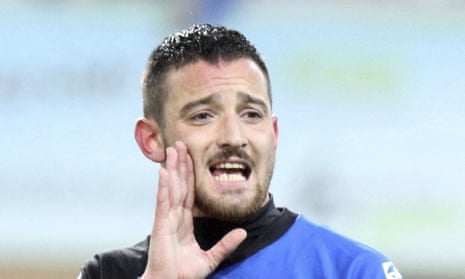German prosecutors have opened an attempted murder investigation after a German-Turkish football player known for his pro-Kurdish views was fired at on a motorway.
Deniz Naki, who plays for the Turkish third-tier club Amedspor in the majority-Kurdish city of Diyarbakır, was unharmed in the incident in western Germany late on Sunday, but told German media he had feared for his life.
He said his car came under fire from a black van on the A4 motorway near Düren, forcing him on to the hard shoulder and leaving two bullets lodged in the SUV.
“I was afraid for my life,” the German-born player told Die Welt newspaper.
“One bullet hit my car in the middle of the window, the other landed near a tyre. Luckily, I wasn’t hit.”
Naki, 28, who represented Germany at under-19 level and also played for the German club FC St Pauli, said he was convinced he was targeted because of his criticism of the Turkish president, Recep Tayyip Erdoğan.
“I am a walking target in Turkey because of my pro-Kurdish stance,” he told bento, an online news portal.
He said he believed the attacker was either a Turkish government agent or a rightwing Turkish radical.
“I always knew that something like this could happen, but I would never have thought it could happen in Germany,” he told Die Welt.
Naki, who was visiting Germany, was convicted last year of making terrorist propaganda for the outlawed Kurdistan Workers’ Party and handed a suspended prison term by a Turkish court.
The sentence came after he used social media to criticise the government’s operations against PKK militants in south-east Turkey.
He denied the charges, saying he only wanted to offer a message of peace in the deadly standoff between the army and Kurdish militants.
A spokeswoman for the prosecutor’s office in Aachen declined to say whether a political motive for the incident was suspected.
“We are investigating in all directions,” said Katja Schlenkermann-Pitts.
